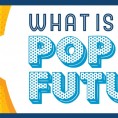We’re all looking for happiness in our career – a subject which Kerry Hannon, author of Love Your Job: The New Rules for Career Happiness, is well acquainted with. But what does it take to find it as a Baby Boomer, and what should employers and managers know when looking to create a positive workplace environment in which members of this generation can thrive? On the heels of our recent bestselling book Millennial Marketing: Bridging The Generation Gap, we asked Hannon to weigh in with some hints, tips, and suggestions.
Q: A lot of people seem to have their own ideas of what constitutes being a Baby Boomer – how would you define members of this generation instead??
A: Baby Boomers are my generation. We were born during the demographic Post–World War II baby boom between the years 1946 and 1964. For me, that’s 1960. The attitude that we can do anything we set our minds and energy to doing defines us as well. Especially for women like myself at the tail end, the barriers to success and entry into the workplace and elsewhere fell away in some fashion and a sense of confidence and possibility replaced them.
Q: What are some of the most crucial new happenings and developments we’re seeing amongst members of this generation?
A: We’re on a track to live longer lives and hopefully healthier ones. Someone at 50 easily has another 15 years ahead where they can continue to work and the opportunities we have to use our experience to give back and make an impact on the world around us are noteworthy.
Never before has there been such a large population of people who have the wherewithal to continue to make a difference in a new chapter of life sometimes referred to as “Adulthood 2” or “Middle-escence,” as opposed to adolescence. It opens the door to second acts, encore careers, and possibilities to retrain and re-deploy to pursue our passions and leave behind a legacy. It’s human capital on steroids.
Q: A few unexpected things people would never guess about members of this generation would be…?
A: Even those who have saved for a retirement have a drive to continue to work in some fashion. Work is now a pillar of our retirement plans, as oxymoronic as that sounds–along with traditional retirement savings, personal savings and Social Security. We have a can-do spirit that seems to intrinsically know that staying engaged and connected with a network of people and that work, paid or unpaid, that makes us feel needed and relevant will keep our minds sharper and also give back a sense of well-being and health benefits. Studies have already shown this to be true.
Q: How does this generation fundamentally differ from those which came before – and those which have followed since?
A: We don’t see retirement as retiring at all. It is not the end, but the beginning of a new chapter. We are retiring to something, not from something, which is an expression I hear a lot from the audiences I speak to around the country who are seeking post-retirement jobs that provide meaning, purpose and a paycheck.
On a more fundamental note, many will also need to work in retirement because they simply don’t not have the savings set aside for retirement or have had jobs that provide a traditional pension. This cadre has a palpable fear of outliving their money. Many did suffer job layoffs stemming from the 2008 economic plunge and never have been able to regain their traction in the workforce.
Q: How might Baby Boomers be unexpectedly similar to other generations in ways casual observers might not expect?
A: They value community, family, friendships and work-life balance.
Q: How have boomers changed as they’ve aged over time?
A: Many boomers whom I have interviewed and whose work lives I have researched have embraced a more fluid approach to jobs, mostly out of necessity. They have lost jobs due to layoffs, cutbacks, and hard to prove ageism by employers in the workplace and have had to pivot and create new career paths.
Q: As boomers move into later stages of life, how are they redefining the concepts of retirement and old age?
A: As I discussed above, retirement will be a combination of paid and unpaid work for a variety of reasons. Each Boomer has a unique story. We are a diverse bunch. But the sheer fact that we will be grappling with longer lifespans make a new active definition of this life stage imperative and an organic result of additional years of life will tell the story. What is old? Boomers will redefine the word.
Q: What does success look like for today’s Baby Boomer in your opinion, and what’s driving them as they go about making decisions in business and life?
A: A better work-life balance, autonomy, and flexibility in work arrangements. The freedom to pursue passions and dream careers in a bonus life chapter. A deep desire for lifelong learning. And a confidence that they can make the world a better place for generations that follow.
For more on how to effectively manage, lead, and communicate with every generation, be sure to check out Millennial Marketing: Bridging the Generation Gap.














